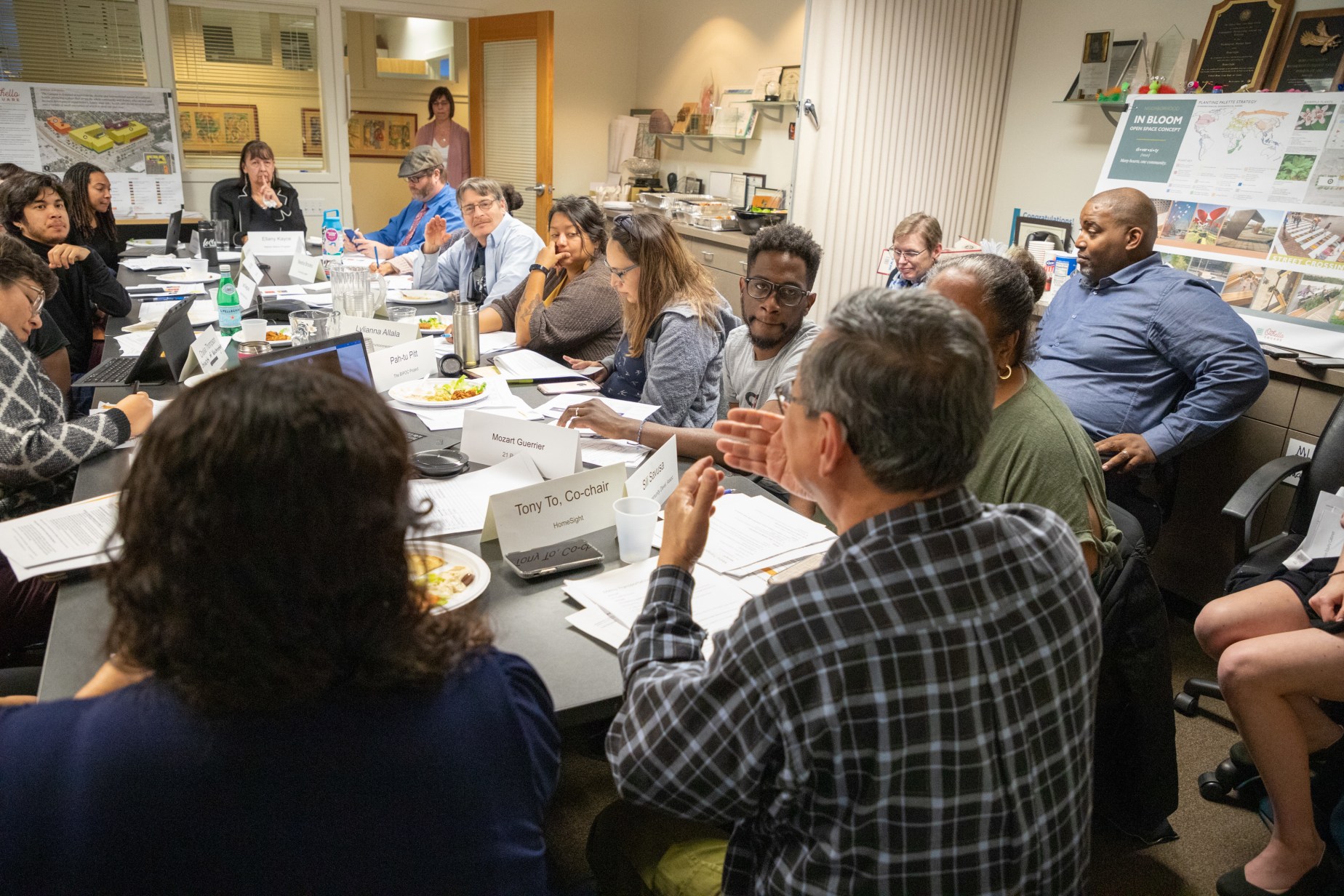
A 2019 meeting of the King County Metro Equity Cabinet. King County Council voted this week to put the Cabinet’s Mobility Framework into action. Photo via King County Metro.
On December 7, King County Council voted unanimously to put a series of groundbreaking equity and sustainability policy updates from King County Metro’s Mobility Framework into action through Metro’s Strategic Plan for Public Transportation, Service Guidelines, and Metro Connects long-range plan.
Like many public agencies, King County Metro uses policy documents like these to guide decisions about how to operate and improve. Policies like these inform decisions about anything from whether to install a handrail on a station platform, to where future transit lines should be developed and prioritized.
In 2019 Metro convened a Mobility Equity Cabinet—a group of leaders from historically underserved and underrepresented communities including low-income populations, Black, indigenous and communities of color, immigrants and refugees, limited English-speaking populations, and people with disabilities. Over the course of more than a year, the Equity Cabinet members met regularly with King County Metro and together co-created a set of guiding principles and recommendations for centering equity and sustainability for the agency. The process gathered input from transit riders, especially from priority populations, as well as regional partners, elected leaders and King County Metro employees. The result was King County Metro’s Mobility Framework, completed in October 2019 and adopted by the King County Council in March 2020.
This week’s vote takes that Framework applies it to Metro’s foundational policy documents. This will change will affect how the agency prioritizes investment, improves service, and plans for the future.
The TCC team is proud to have been part of the Equity Cabinet, and throughout the course of the Framework’s development our staff, partners, and supporters joined meetings, sent letters, and testified in support of these changes to better center equity and sustainability.
We offer our congratulations to the King County Council for their action this week, and to the Regional Transit Committee and Mobility & Environment Committee for their careful consideration and work on these policies leading up to this vote. We are grateful to the deliberate collaboration of Sound Cities Association, which worked to coordinate multiple jurisdictions, and to Councilmembers Claudia Balducci, Dave Upthegrove, and Rod Dembowski for their leadership as Chairs in this process.
Now, we’ll need to work to fund these priorities. The Mobility Framework and guiding policy documents lay out important priorities, but they will only make a difference if they get funded. One important change included in this update, from Councilmember Balducci, requires Metro to report on its funding gap and funding options, as well as a planning process to implement Metro Connects, the agency’s plan for increasing service and expanding the transit network over the next 25 years. This is a great next step toward growing the system to better provide faster, more frequent service in communities where needs are greatest and countywide.
In the months ahead Transportation Choices Coalition will be working in partnership with King County Metro and the King County Council to start the process to fully fund Metro Connects. Sign up for our mailing list to be part of that effort, and to voice your support for policies like Metro’s Mobility Framework, their updated guiding documents, and the funding it will take to make this vision possible.




